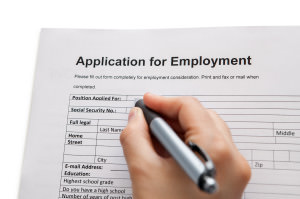Blogs
 Members of the military get certain protections when it comes to federal student loans.
Members of the military get certain protections when it comes to federal student loans.
Over the years I’ve represented a number of people in the Armed Forces. Two things that blow my mind are how little they get paid to serve our country, and how many of them are burdened with student loans.
Student loans are bad enough for people working for a living, but when it comes to the military it’s often a case of juggling finances to keep the federal student loans up to date.
Thankfully, the government has some ways to make it easier to bear the burden.
Deferring Federal Student Loans While On Active Duty
If you’re called to active duty (or performing National Guard duty) during a war, military operation, or national emergency then you may be eligible to defer federal student loan payments.
Your deferment begins at the time of mobilization and continues for up to 180 days following qualifying service.
If you took out your student loans – private or federal – before you entered the military or were called to active duty, the Servicemembers Civil Relief Act limits the interest rate on your loans to 6% during your active duty military service.
In addition, if you have a Direct Loans first disbursed on or after Oct. 1, 2008 then no interest will accrue on your Direct Loans for up to 60 months of active duty or while performing qualifying National Guard duty during a war, other military operation, or national emergency and are serving in an area of hostilities qualifying for special pay.
If You’re Enrolled In School When You’re Called To Active Duty
Under the College Cost Reduction and Access Act (CCRAA), if you’re a member of the National Guard, Armed Forces Reserve, or the Armed Forces in retired status, you are eligible for a 13 month period of deferment on repayment of your Perkins loans following the completion of your active duty military service.
This deferent applies only if you were enrolled in a postsecondary school at the time of, or within six months prior to, your activation.
Public Service Loan Forgiveness
Under the Public Service Loan Forgiveness Program you can have your federal student loans completely wiped out if you have:
- made 120 regular payments on your federal student loans;
- while employed full-time by the U.S. Military or by certain other types of employers.
Payment Plans And Consolidation
Consolidation of your federal student loans may lower your payments due.
In addition, you should look into the possibility of extended repayment options, income-based repayment, and other ways of bringing the payments in line with your income.
See Also:
- Federal Student Loan Standard Repayment Options
- Income-Based Repayment Options
- Pay-As-You-Earn Program For Federal Student Loans
What About Private Student Loans?
Remember that the Servicemembers Civil Relief Act limits the interest rate on private student loans to 6% during your active duty military service.
Unfortunately, there are no other formal programs to help you. That said, some lenders may be in a position to work with you on payments during your active duty period.
See Also:
Look Into Options And Maximize Your Protection
If you’re serving the country, the last thing you should be worried about are your student loan problems.
Your loved ones, your finances and your professional responsibilities come before anything else.
Looking into your options will help keep you out of trouble with your student loans. You serve your country; always remember to serve yourself as well.
Jeff in today's Advertiser.
My name is Jeff McLeod, and I live in Montgomery.
 A popular gift shop located just blocks away from the White House has filed for bankruptcy protection. The shop known as the “Official White House Gift Shop” claims it is unable to pay their creditors with outstanding liabilities in the hundreds of thousands of dollars. The shop is known for selling memorabilia and commemorative items [...]
A popular gift shop located just blocks away from the White House has filed for bankruptcy protection. The shop known as the “Official White House Gift Shop” claims it is unable to pay their creditors with outstanding liabilities in the hundreds of thousands of dollars. The shop is known for selling memorabilia and commemorative items [...]
 SoFi is turning the student loan market upside down with a mission to help borrowers mired under the weight of student debt.
SoFi is turning the student loan market upside down with a mission to help borrowers mired under the weight of student debt.
The company, founded at Stanford University in 2011, aims to get wealthy alumni to lend to the next generation of graduates at rates that are lower than those offered by either private or federal student loans. Variable rates are as low as 2.94%, and fixed rates are as low as 4.99%.
SoFi currently works with graduates of 100 schools, and recently secured $500 million in financing to continue expansion. Interesting to note that one of the companies helping to fund SoFi is ECMC, the student loan guarantor.
What’s interesting about SoFi isn’t so much the refinancing of student loans, but rather how the company is leveraging the power of social media as part of its business model. Students are matched with potential lenders based on shared interests, and alumni act as informal mentors to help connect their borrowers with job opportunities.
By using the social angle, the SoFi lenders are maximizing their chances of getting paid back. Lenders help borrowers get jobs, which in turn enables those graduates to repay their student loans.
About 3,000 students have signed up for a SoFi loan so far, and astoundingly there have been no defaults to date. It’s a small sample of borrowers from only the best schools, but the idea has massive appeal.
There aren’t any current plans to expand SoFi to more schools right now because the founder is concerned about schools charging more for the education than the value provided to graduates. That’s also telling, I think.
It remains to be seen as to whether SoFi can make a huge dent in the world of student loans, but the company’s vision may well serve as a model for alumni networks of other schools to do something similar.
As for students entering colleges and graduate schools, the question of the vibrancy of alumni networks may need to be addressed before the start of classes.
More about SoFi:
SoFi Website
SoFi Announces Partnership with Career Athletes
SoFi raises $500M to fix the broken student loan market
 Being in debt is a simple equation – income is not enough to cover expenses including paying off the bills.
Being in debt is a simple equation – income is not enough to cover expenses including paying off the bills.
With that in mind, lots of personal finance experts recommend that you get a second job. Dave Ramsey, for example, extolls the virtues of delivering pizza at night to help end your bill problems.
Before you start thumbing through the Help Wanted ads, best to consider whether a second job is a good idea for you.
Why A Second Job Makes Sense
If you’re in debt, the income that comes with a second job is tempting. Every penny you come home with can go towards debt reduction, helping you climb out of the financial hole that much more quickly.
Your existing expenses continue to get paid through your primary source of income, and things are better overall.
As an added bonus, a second job is typically less stressful than the daily 9-to-5. That means you won’t bring home the stress that comes with your primary job.
But A Second Job Is Not All Wine And Roses
As Notorious B.I.G. said, “mo’ money, mo’ problems.” He wasn’t kidding.
In fact, here are just a few reasons why getting that second job may not be the best move:
Less time to spend with your family. If you’ve got kids, forget seeing those soccer and baseball games. Evenings by the television with your spouse? Forget those, too. Even if you’re not at work, you’re sure to be more exhausted when you’re physically present.
A smaller paycheck. No more overtime for you, my friend. Rather than getting time-and-a-half from your first job, you’re going to need to get out on time or you’ll be late for Job Number Two.
Less time for your health. If you’re working two jobs, chances are you’ll have less time to exercise. 16 hours a day at work doesn’t leave much time or energy to put on those running shoes and hit the pavement. In fact, working the night shift has been proven to lead to weight gain and diabetes.
An angry boss. The boss of your day job may not take too kindly to your evening work, thinking that it shows less of a commitment to your primary employment situation. Some workplaces require prior authorization to take on a second job or forbid it altogether.
Extra costs. When you shuttle back and forth between two jobs, you’ve got to tack on extra expenses for gas money and food.
More for your (un)favorite Uncle. A higher income may put you into a higher tax bracket. That means more money flows out of your pocket and goes to Uncle Sam, so be careful.
Balance The Books Before Sending A Resume
Getting a second job may be a good way to end your money problems, but you can’t be sure until you’ve run all the numbers.
Making a bed decision could cause you more headache than it solves.
This is the case of David Hammons who comes from Skokie, Illinois which is Cook County, Illinois. He is married to Christine but Christine is going to be a non-filing spouse in this case. Right off the bat, we are not sure whether this is going to be a Chapter 7 or Chapter 13 so+ Read MoreThe post Bankruptcy Software Will Determine If Chapter 7 Or Chapter 13 appeared first on David M. Siegel.
 Why would anyone want to file a Chapter 13 bankruptcy? When you are struggling to make ends meet it may seem odd that filing a bankruptcy that requires making payments to your creditors can be a better deal than Chapter 7. It often isn’t, but here are three situations where filing Chapter 13 can save you a lot of money and aggravation:
Why would anyone want to file a Chapter 13 bankruptcy? When you are struggling to make ends meet it may seem odd that filing a bankruptcy that requires making payments to your creditors can be a better deal than Chapter 7. It often isn’t, but here are three situations where filing Chapter 13 can save you a lot of money and aggravation:
1. Chapter 13 can save your house from foreclosure. Once you fall behind on payments it is tough to get back on top of things. When you are facing foreclosure a Chapter 13 will stop your house from being sold out from under you. Chapter 13 gives you a chance to get caught up on payments. These catch up payments can be stretched out over a five year period.
2. Get rid of a second mortgage. Chapter 7 will discharge a second mortgage. That does not do you much good when you want to keep the house. The second mortgage lien survives the Chapter 7 discharge. Chapter 13 is often a better deal. The rules are different in Chapter 13. When your house is worth less than the first mortgage, Chapter 13 allows you to discharge the second mortgage and have the second mortgage lien removed.
3. Save your car. In this town a car is a necessity for most of us. When you are behind on payments you are in danger of having the car repossessed. Chapter 7 might slow down repossession, but it won’t stop it unless you can get caught up on payments fast. Chapter 13 will allow you to keep the car and pay it off in a payment plan that can last as long as five years. Many times we are able to reduce the amount owed and have a lower interest rate set.
4. Force the IRS into a payment plan. It is hard to imagine a worse creditor than the IRS. Even if you are able to work out a payment plan with the IRS they will continue to add penalties and interest to the amount owed. Chapter 13 will allow you to pay back taxes and stop additional penalties and interest from being added.
Even when you meet the rules for filing a Chapter 7 bankruptcy there may be good reasons to consider a Chapter 13 instead. Chapter 13 will often save you money and the loss of valuable property. To learn more, give us a call at 480-820-0800 and talk to an experienced Arizona bankruptcy lawyer.
Original article: Top 4 Reasons to Consider Chapter 13©2013 Arizona Bankruptcy Lawyer. All Rights Reserved.The post Top 4 Reasons to Consider Chapter 13 appeared first on Arizona Bankruptcy Lawyer.
 Many consumers who are struggling financially weigh their options with either bankruptcy or debt consolidation. While both options can help you deal with debt, in some cases, one may present more advantages than the other. When you compare pros and cons of each, you may get a better idea which option may be best for [...]
Many consumers who are struggling financially weigh their options with either bankruptcy or debt consolidation. While both options can help you deal with debt, in some cases, one may present more advantages than the other. When you compare pros and cons of each, you may get a better idea which option may be best for [...]
According to Investopedia, your credit score is: “A statistically derived numeric expression of a person’s creditworthiness that is used by lenders to access the likelihood that a person will repay his or her debts.” Unfortunately, many people look at their credit score as a mark of their self worth. Here are some interesting facts that [...]The post Understanding Your Credit Score. What does your credit score really mean? appeared first on Acclaim Legal Services, PLLC.

 Bringing you the most up-to-date news, tips and blogs throughout the web. Here’s your Bankruptcy Update for October 22, 2013 Widow’s Bankruptcy Case Poses Risk to Rent-Stabilized Tenants Casey Anthony settles bankruptcy case French luxury chain Hediard files for bankruptcy
Bringing you the most up-to-date news, tips and blogs throughout the web. Here’s your Bankruptcy Update for October 22, 2013 Widow’s Bankruptcy Case Poses Risk to Rent-Stabilized Tenants Casey Anthony settles bankruptcy case French luxury chain Hediard files for bankruptcy  Updated daily, this blog will keep you informed on the latest bankruptcy news!
Updated daily, this blog will keep you informed on the latest bankruptcy news!  Learn more about how Bankruptcy works and what you need to know.
Learn more about how Bankruptcy works and what you need to know.